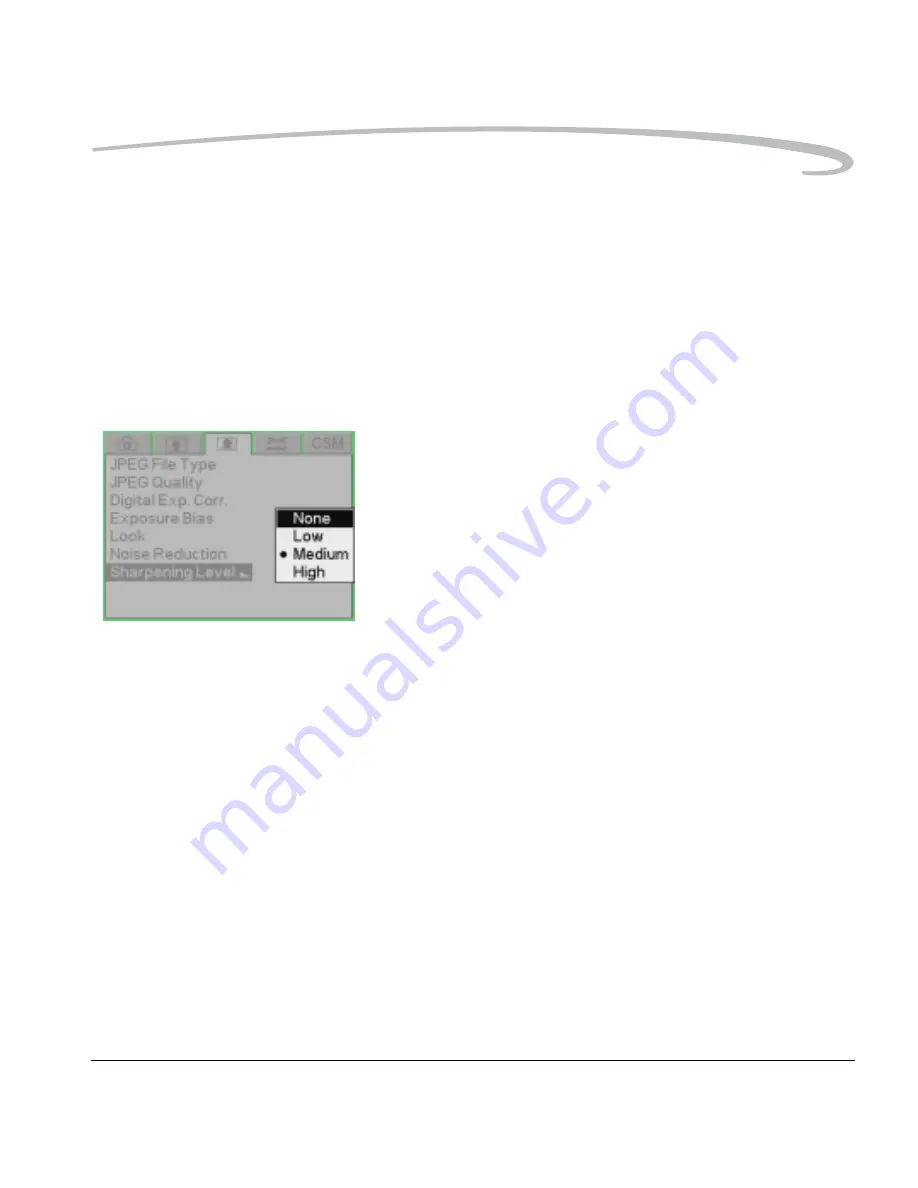
Setting up Cards, Folders, and Files
April 29, 2004
6-17
Sharpening Level
You can specify the sharpening level applied to images.
Sharpening Level is applied to JPEG images on the camera. It is not applied
to Raw images on the camera. Rather, the information is saved and applied
when the images are processed in the DCS Photo Desk software. (You can
also change the setting in the DCS Photo Desk software.)
None—
No sharpening is applied
Low—
Minimal sharpening is applied
Medium—
Moderate sharpening is applied
High—
Substantial sharpening is applied
1. Choose Sharpening Level from the Image menu, then highlight None,
Low, Medium, or High.
2. Press the OK button.






























